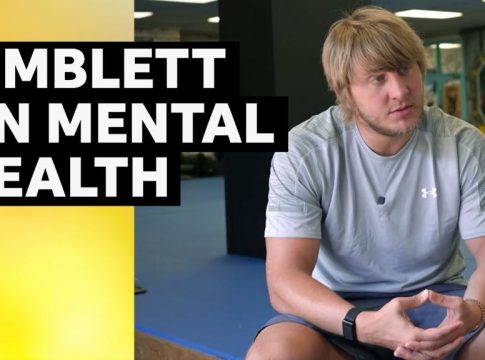Embracing Mental Health: Insights from UFC Star Paddy Pimblett
A Conversation About Struggles
In a recent discussion with BBC Sport, UFC fighter Paddy Pimblett opened up about his experiences with mental health, a topic that remains vital yet often stigmatized. Pimblett emphasized the importance of addressing mental wellness, particularly in high-pressure environments like professional sports. His candid narrative sheds light on the complexity of mental health challenges and the significance of supportive relationships.
The Importance of Connection
Among the most compelling aspects of Pimblett’s journey is his strong friendship with retired fighter Molly McCann. Their bond highlights a crucial insight: understanding and support from loved ones can be transformative. Having someone to confide in can help alleviate the heavy burdens many carry, particularly when dealing with anxiety, depression, or feelings of isolation.
Consider these points for nurturing connections:
- Reach Out: Regularly check in with friends and family, fostering an atmosphere of openness.
- Listen Actively: When someone shares their feelings, listen without judgment; simply being present can make a difference.
- Share Your Story: Sometimes, sharing personal experiences can encourage others to open up as well.
Normalizing the Conversation
By openly discussing mental health, Pimblett contributes to a crucial cultural shift. His message is clear: it’s okay to not be okay. Recognizing that mental health struggles are a common part of life is a powerful step towards healing.
Signs of mental health challenges include:
- Persistent feelings of sadness or anxiety
- Changes in sleep patterns or appetite
- Withdrawal from social activities
- Difficulty concentrating or making decisions
Recognizing these signs in ourselves or loved ones can pave the way for seeking help.
Seeking Help and Support
Support is essential in navigating mental health issues. For anyone facing challenges, reaching for professional help can be a life-changing decision. Whether through therapy, counseling, or support groups, there are numerous resources available.
If you or someone you know is struggling, consider these actions:
- Speak to a Professional: A mental health professional can provide tailored strategies for coping and healing.
- Engage with Community Support: Organizations often host group discussions or workshops centered around mental wellness.
- Utilize Resources: Websites like BBC.com/actionline offer valuable information for finding help and support.
Moving Forward Together
Paddy Pimblett’s journey underscores a pivotal message: prioritizing mental health is not a sign of weakness, but a testament to strength. By fostering open conversations, offering support, and seeking help when needed, we can all contribute to a more compassionate and understanding world.
Remember, reaching out for help is a brave step; you are not alone.

Covers wellness, nutrition, mental health, and daily life tips.
Bio: Talia brings a background in health journalism and holistic living to help readers live better, one tip at a time.

